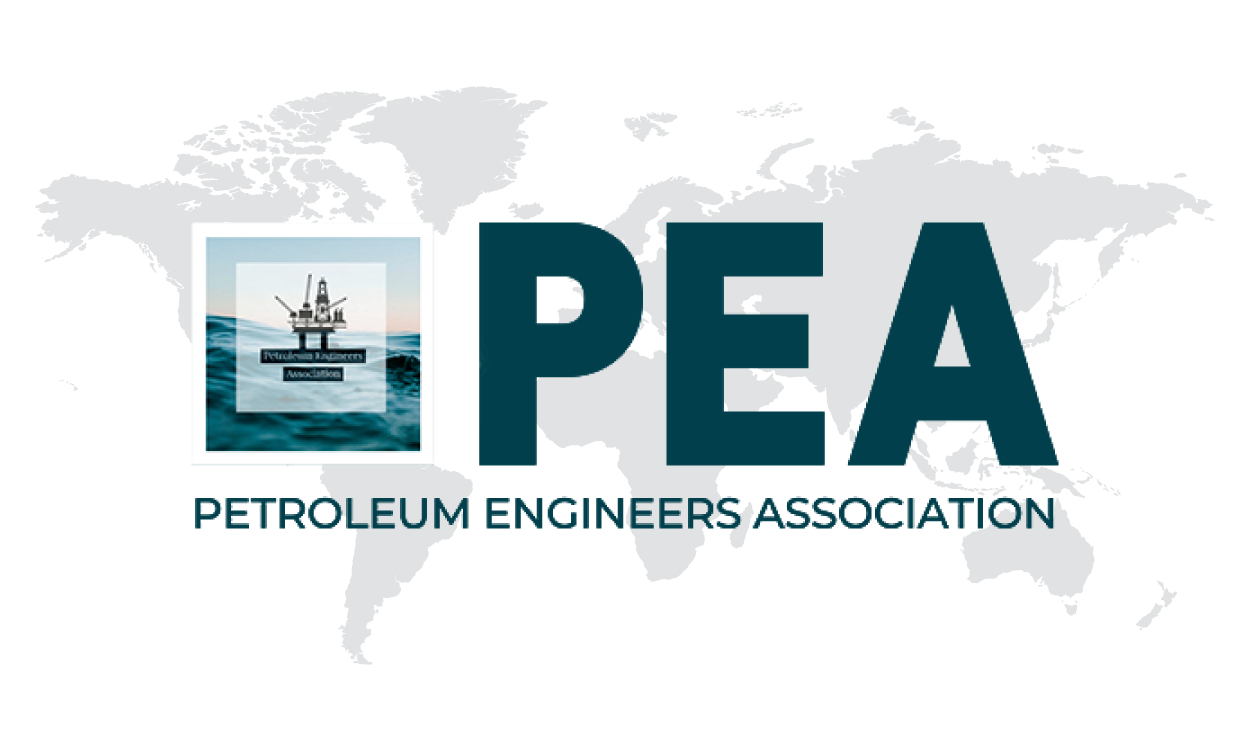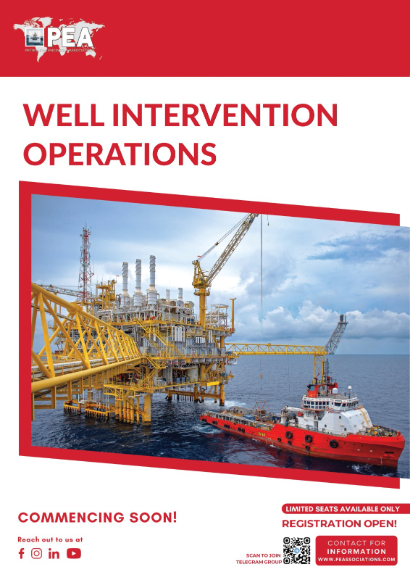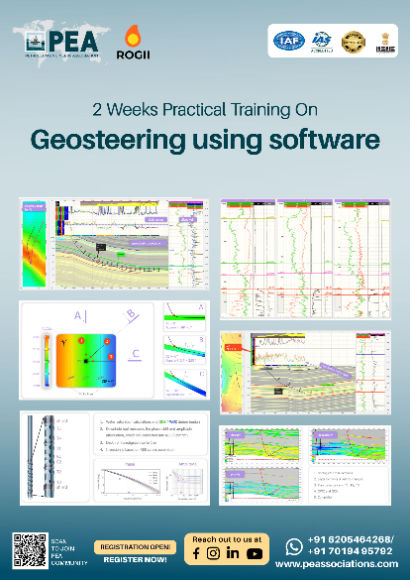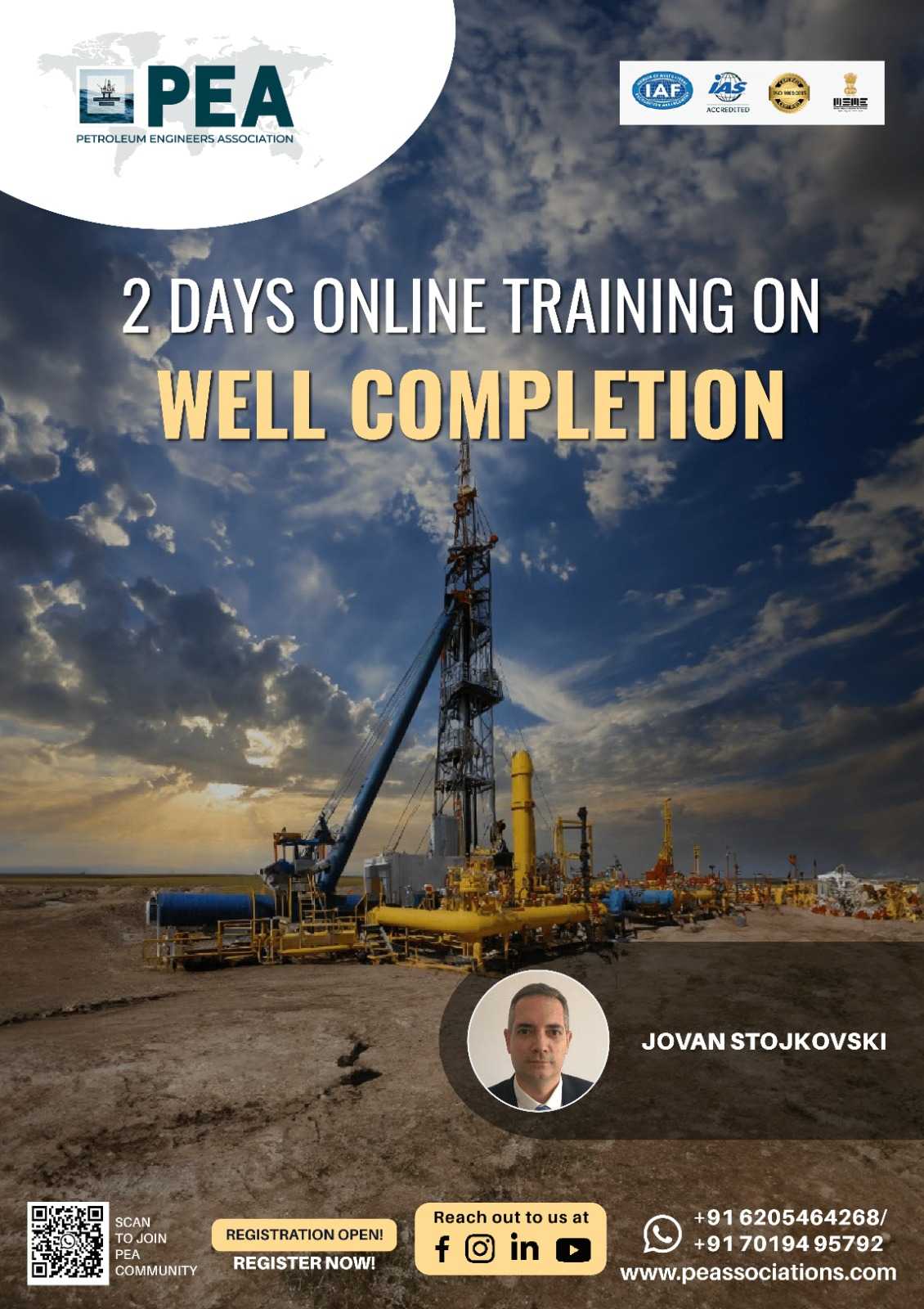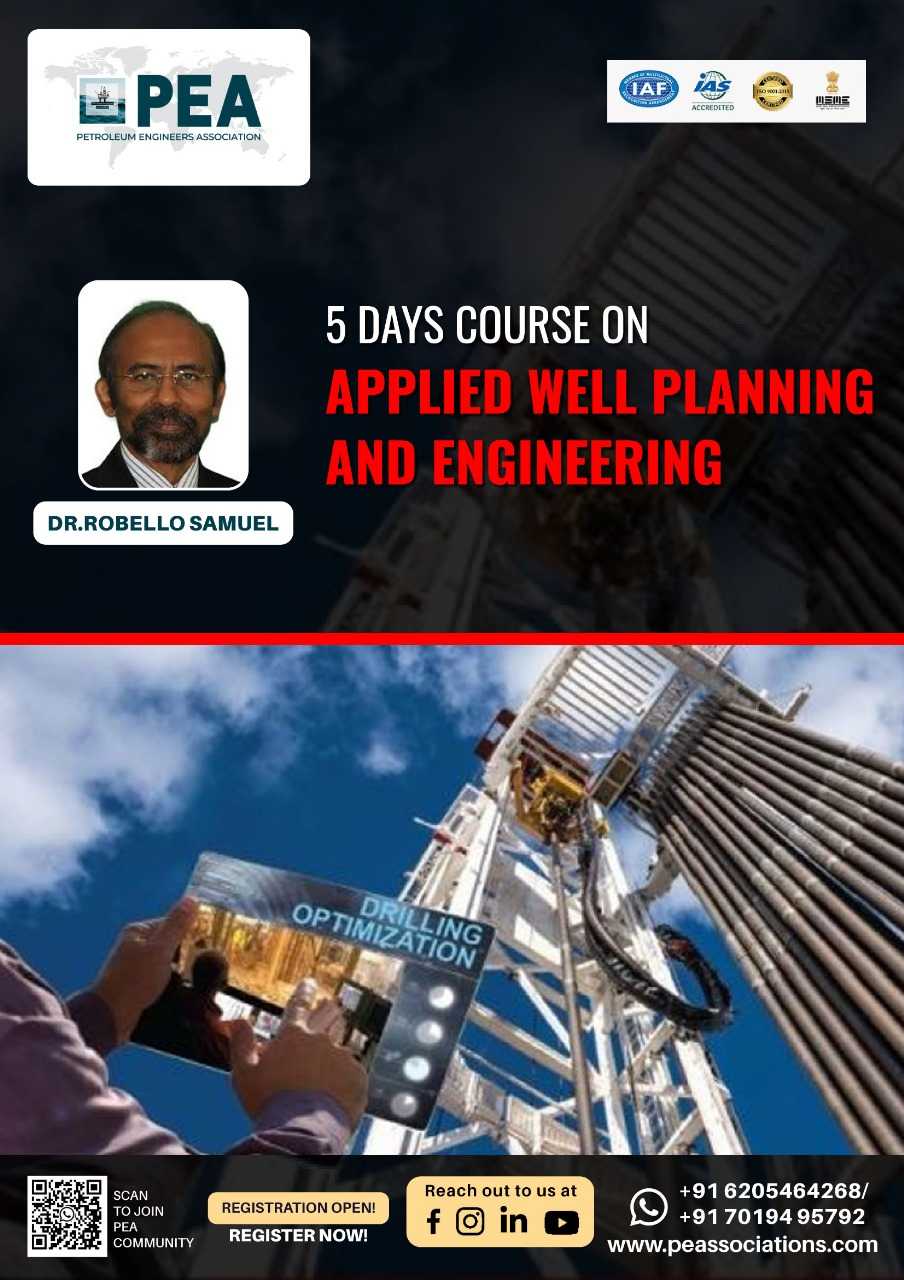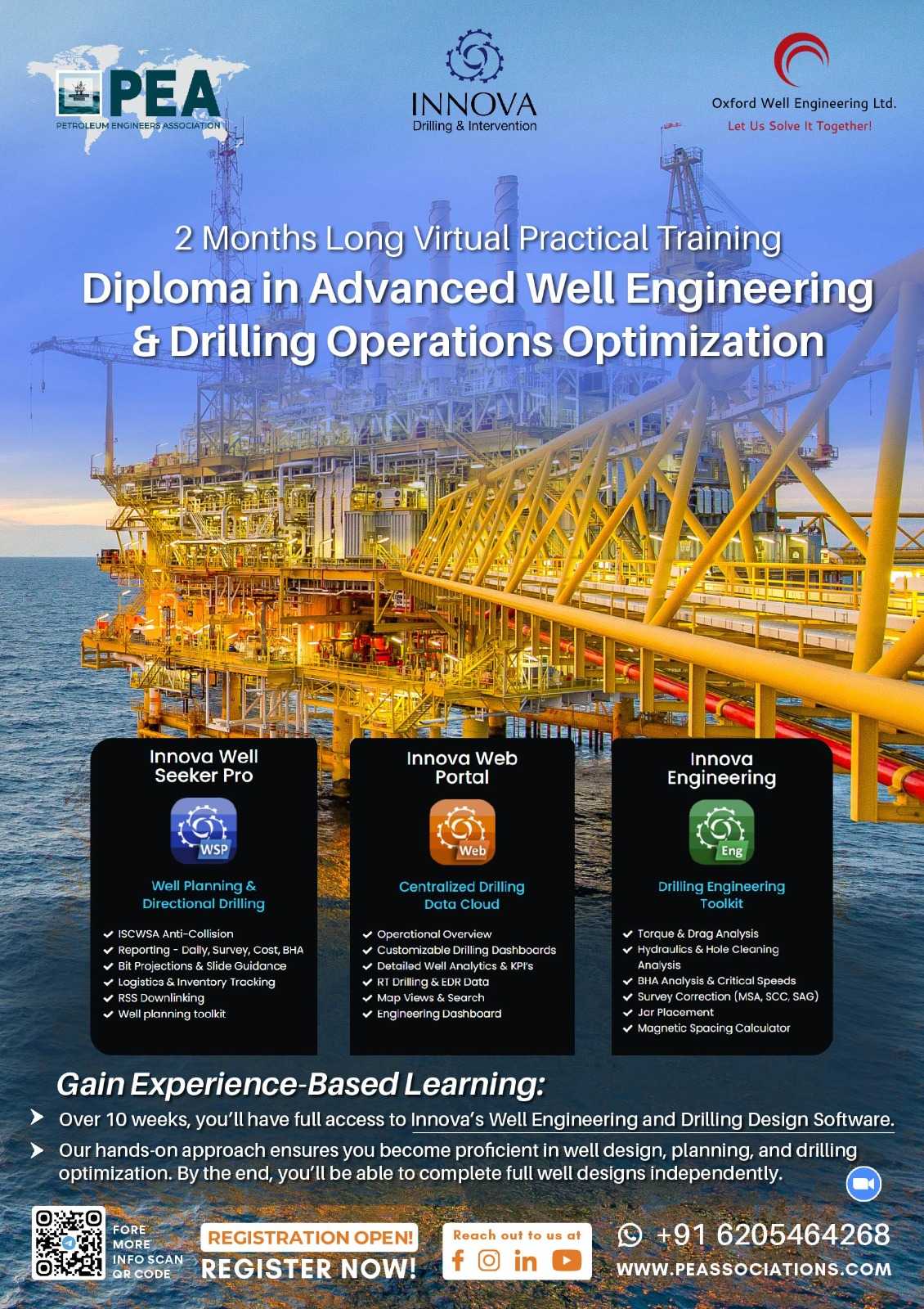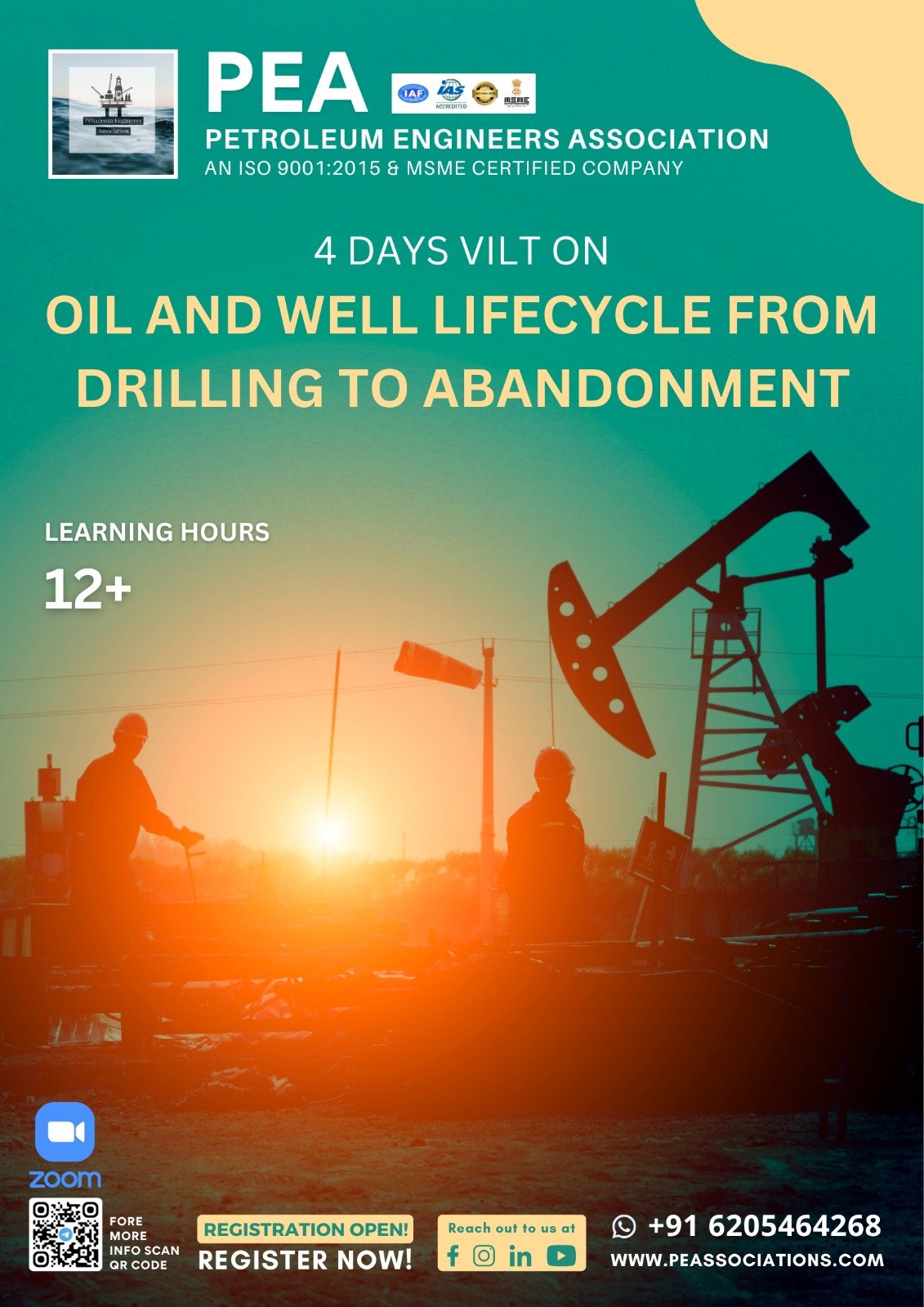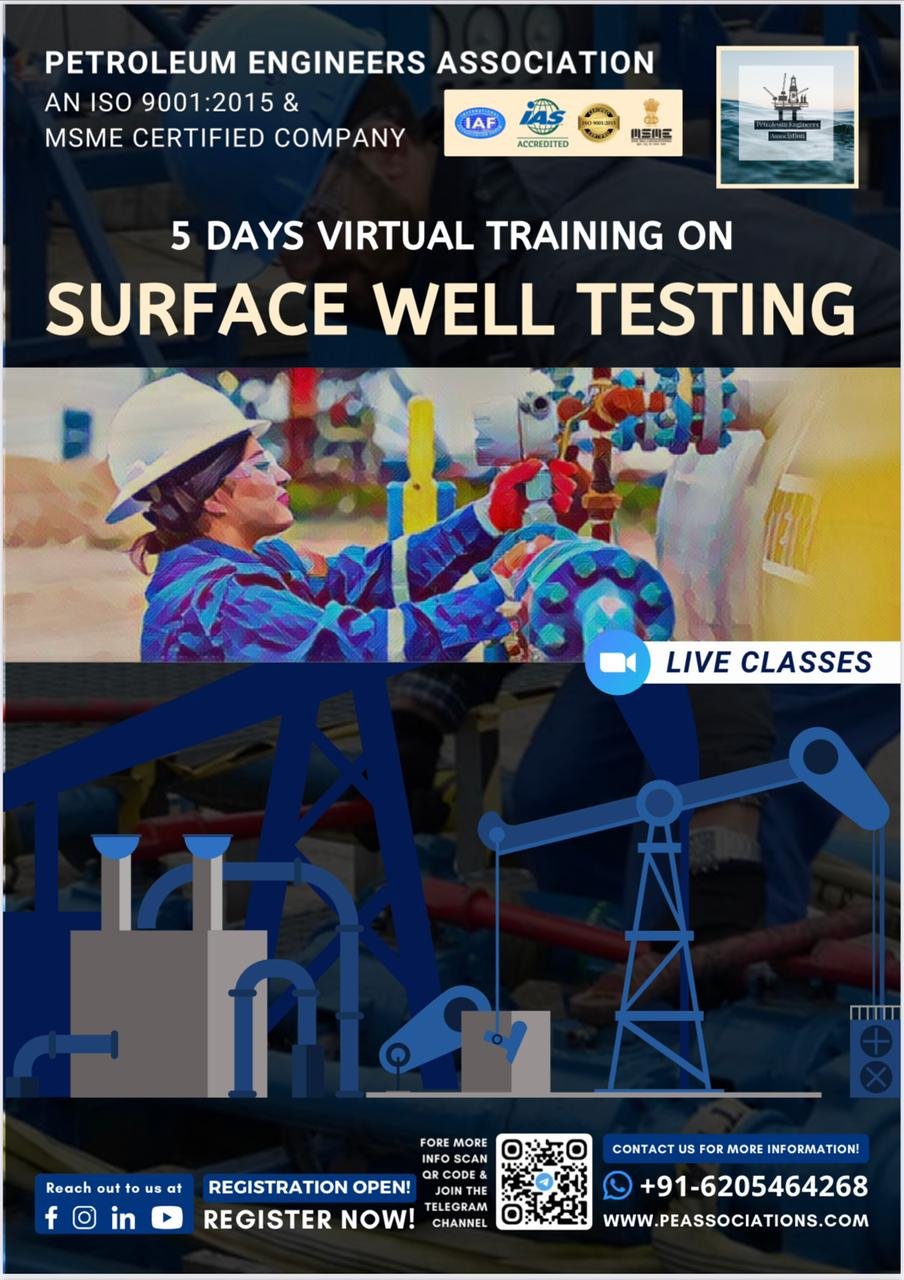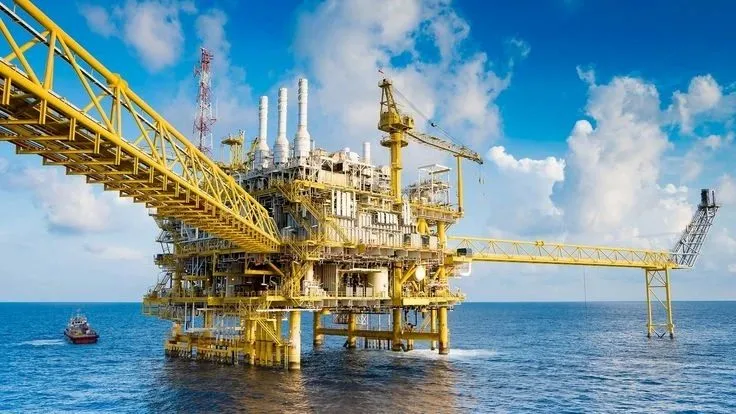Boost your team's skills and your budget! Enjoy group discounts for collaborative learning. Send an inquiry to info@peassociations.com.
Well Intervention Operations
Description
Well intervention is a vital process in the life of a well, used to restore or improve production, perform diagnostics, and maintain well integrity. This course delivers in-depth knowledge of different well intervention methods, including rigless and rig-based operations. It emphasizes operational planning, equipment selection, risk mitigation, and post-job analysis. With real-world case studies and best practices, participants will be equipped to carry out interventions more safely, efficiently, and cost-effectively.
Oil and gas wells often require maintenance or modification during their productive life. Well interventions are essential to ensure optimal performance and to tackle production challenges without the need for drilling new wells. This course is designed to provide professionals with a strong foundation in well intervention operations, covering everything from basic techniques to advanced tools and procedures. It highlights both theoretical principles and field execution, with an emphasis on safety and efficiency.
By the end of this course, participants will be able to:
-
Understand the purpose and types of well intervention operations
-
Plan and design safe and effective well intervention programs
-
Select and apply the right intervention techniques (e.g., slickline, wireline, coiled tubing)
-
Analyze well performance and identify intervention opportunities
-
Mitigate operational risks and handle downhole challenges
-
Evaluate the success and efficiency of intervention activities
The course combines instructor-led presentations, interactive discussions, real-world case studies, and practical exercises. Participants will engage in problem-solving sessions and group activities to reinforce learning and simulate field decision-making. Digital materials and tools will support a hands-on, application-focused experience.
Upon completion, participants will bring back valuable knowledge and skills that contribute to:
-
Enhanced well productivity and uptime
-
Reduced intervention costs through better planning and execution
-
Improved safety and compliance in field operations
-
Optimized resource allocation and equipment usage
-
Strengthened in-house expertise in intervention planning and supervision
Participants will gain:
-
A strong technical understanding of well intervention tools and procedures
-
Practical skills in job planning, execution, and troubleshooting
-
Increased confidence in handling field operations and decision-making
-
A competitive edge in their career with specialized intervention expertise
-
Opportunities for advancement into supervisory and technical leadership roles
This course is ideal for:
-
Well intervention and completion engineers
-
Production and operations engineers
-
Field supervisors and wellsite personnel
-
Drilling and workover engineers
-
HSE professionals involved in well operations
-
Technical managers and advisors seeking deeper intervention insights
Day 1: Introduction to Well Intervention
-
Overview of Well Intervention
-
Types of Well Interventions: Light vs Heavy
-
Key Objectives and Benefits
-
Safety and Risk Considerations
-
Well Integrity and Barrier Philosophy
-
Well Completion Basics
-
Regulatory Framework and Industry Standards
Day 2: Slickline and Braided Line Operations
-
Introduction to Slickline Equipment and Tools
-
Common Slickline Operations: Setting/Pulling Plugs, Gauges, and Valves
-
Braided Line vs Slickline: Applications and Limitations
-
Fishing Operations and Techniques
-
Data Acquisition Using Slickline
-
Pressure Control Equipment for Wireline Operations
-
HSE Considerations in Wireline Work
Day 3: Coiled Tubing Operations
-
Coiled Tubing Fundamentals
-
Surface Equipment and String Design
-
Common CT Applications:
-
Wellbore Cleanout
-
Acidizing
-
Sand Removal
-
Nitrogen Lifting
-
-
Fluid Pumping and Nitrogen Applications
-
Real-Time Logging with CT
-
Case Studies of Successful CT Operations
Day 4: E-Line and Tractor Services
-
Introduction to Electric Line (E-Line) Logging and Perforating
-
E-Line Toolstring Components and Applications
-
Tractor Conveyance for Highly Deviated Wells
-
Explosives Handling and Safety Protocols
-
Memory and Real-Time Logging Tools
-
Advanced Diagnostics with E-Line
-
Planning and Execution Best Practices
Day 5: Integrated Well Intervention Planning and Case Studies
-
Intervention Planning and Program Development
-
Diagnostic Techniques: Pressure/Temperature Analysis
-
Selecting the Right Intervention Method
-
Budgeting and Cost Estimation
-
Job Execution and Post-Job Reporting
-
Lessons Learned from Global Field Cases
-
Final Group Exercise & Assessment
On successful completion of this training course, PEA Certificate will be awarded to the delegates.

